https://github.com/ashishpatel26/MLflow_End_to_End_Example
MLflow is Open source platform for the machine learning lifecycle so here you can learn MLflow End to End Example with Prediction.
https://github.com/ashishpatel26/MLflow_End_to_End_Example
mlflow mlflow-example mlflow-tracking scikit-learn xgboost
Last synced: 5 months ago
JSON representation
MLflow is Open source platform for the machine learning lifecycle so here you can learn MLflow End to End Example with Prediction.
- Host: GitHub
- URL: https://github.com/ashishpatel26/MLflow_End_to_End_Example
- Owner: ashishpatel26
- Created: 2022-06-14T12:52:53.000Z (over 3 years ago)
- Default Branch: main
- Last Pushed: 2022-06-14T13:20:52.000Z (over 3 years ago)
- Last Synced: 2024-08-04T03:07:37.855Z (about 1 year ago)
- Topics: mlflow, mlflow-example, mlflow-tracking, scikit-learn, xgboost
- Language: Jupyter Notebook
- Homepage: https://mlflow.org/docs/latest/index.html
- Size: 1.56 MB
- Stars: 14
- Watchers: 2
- Forks: 13
- Open Issues: 0
-
Metadata Files:
- Readme: README.md
Awesome Lists containing this project
README
### MLFlow End to End Tutorial
---
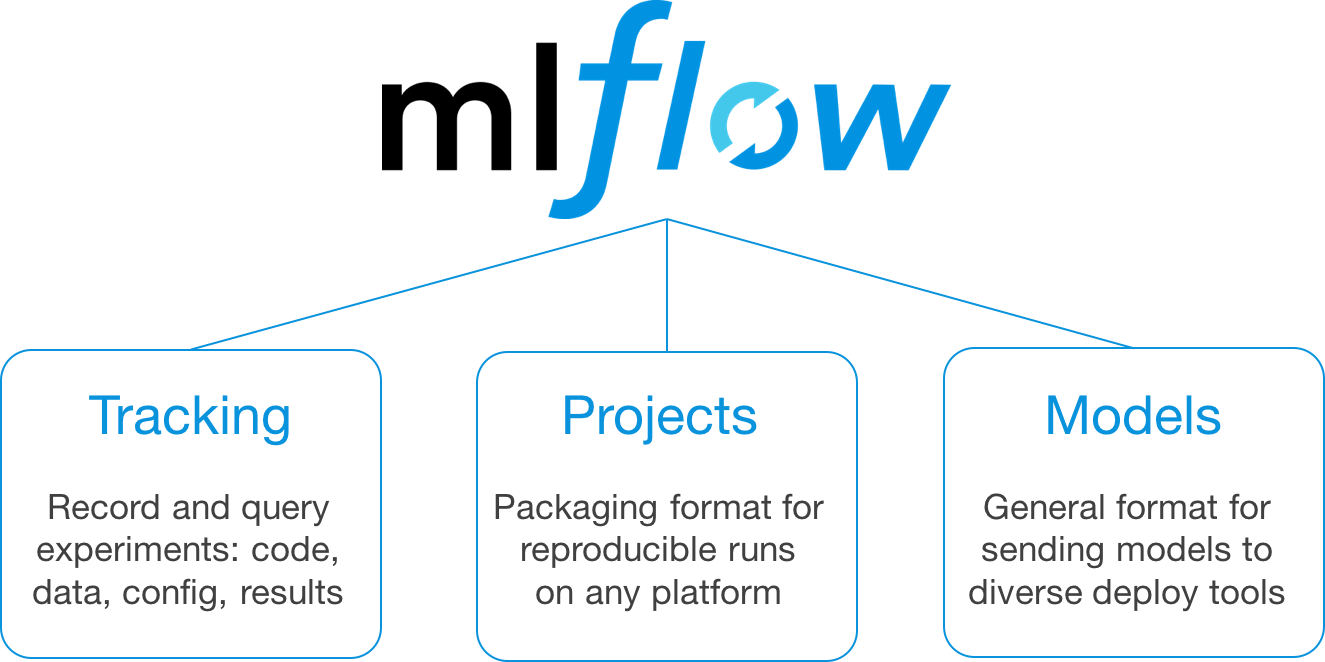
### **What is MLFlow?**
---
* **MLflow** is opensource platform to Manage the ML Life Cycle.
* It includes **experimentation, reproducibility, deployment and central model registry.**
* Advantage of Use **MLFlow** is **Transparency** and **Standardization**.
* It helps you to **train, reuse** and **deploy the model**.
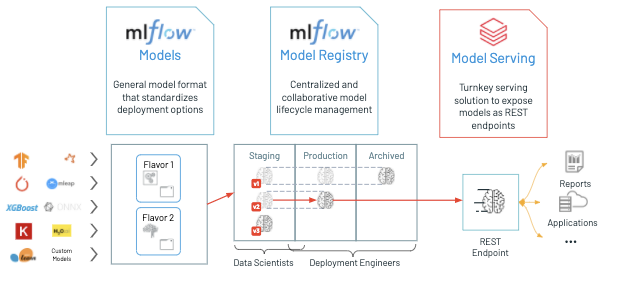
### MLFlow Setup
---
1. Installation of **MLflow**.
```bash
pip install mlflow
```
2. Once you will install with this now time to setup **Central Repository Database** where we will log all our tracking information and also will create the artifacts folder to store our models and its relevant information.
```bash
# Terminal Command
mlflow server --backend-store-uri sqlite:///mlflow.db --default-artifact-root ./artifacts --host 0.0.0.0
```
or
```bash
mlflow server --backend-store-uri sqlite:///mlflow.db --default-artifact-root ./artifacts --host 127.0.0.1 --port 5000
```

> **Output**
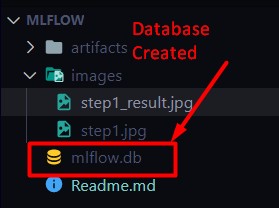
> This Command create the **`mlflow.db`** and **`artifacts`** folder.
### Open MLFLOW UI
---
```bash
mlflow ui
```

### MLFLOW UI LOOKS LIKE
---
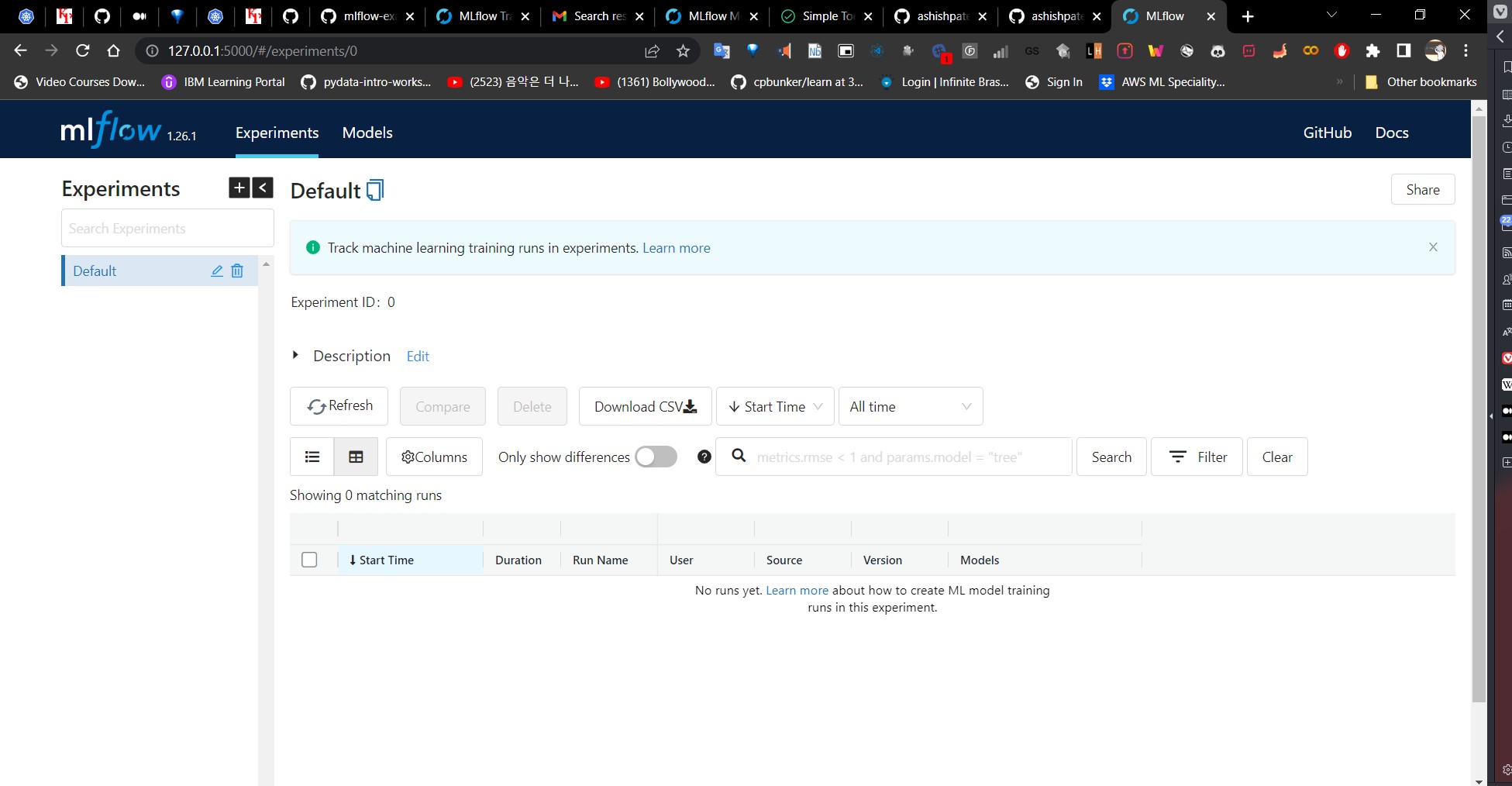
### MLflow Tracking
---
* **MLflow** Tracking is an **API** and **UI** for **Logging Parameter, Code Versions, Metrics, and Output files.**
##### Set Tracking URI and Create Experiment
* We have to create the notebook for tracking server will run in. and we have to set the tracking URI. In our example, `localost:5000` is the tracking URI but you can setup any other tracking host and port in the `set_tracking_uri` function call.
* Initially we have to default experiment created which you can get with `get_experiment` function call.
⭐ **`mlflow.py`**
---
```python
experiment_id = mlflow.create_experiment("my_experiment")
experiment = mlflow.get_experiment(experiment_id)
```
```python
mlflow.set_tracking_uri("http://localhost:5000")
experiment = mlflow.get_experiment('0')
print("Name: {}".format(experiment.name))
print("Artifact Location: {}".format(experiment.artifact_location))
print("Life Cycle Stage: {}".format(experiment.lifecycle_stage))
print("Experiement ID: {}".format(experiment.experiment_id))
```
### **🤝 Prepare the Notebook with ML Case study**
---
> For Experiment Run Notebook, we have to create the notebook with the following steps.
| Notebook | Link |
|--|:--:|
|Notebook| [Open](Notebook.ipynb)|
**Notebook Flow**
---

### MLFlow Model Flavors
---
> The model can be used with tools that support either the `sklearn` or `python_function` model flavors.
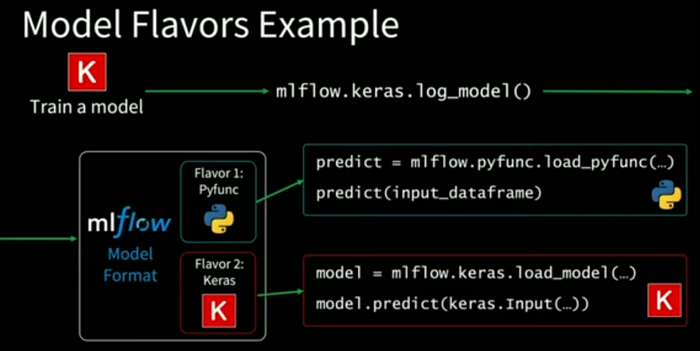
### Diverse Platform
---
> MLflow provides tools to deploy many common model types to diverse platforms.
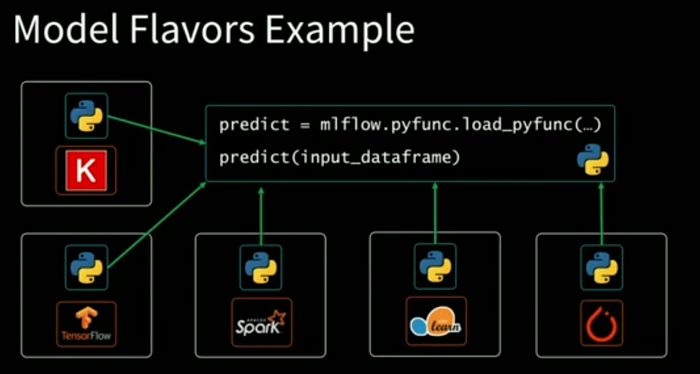
### Experiments
---
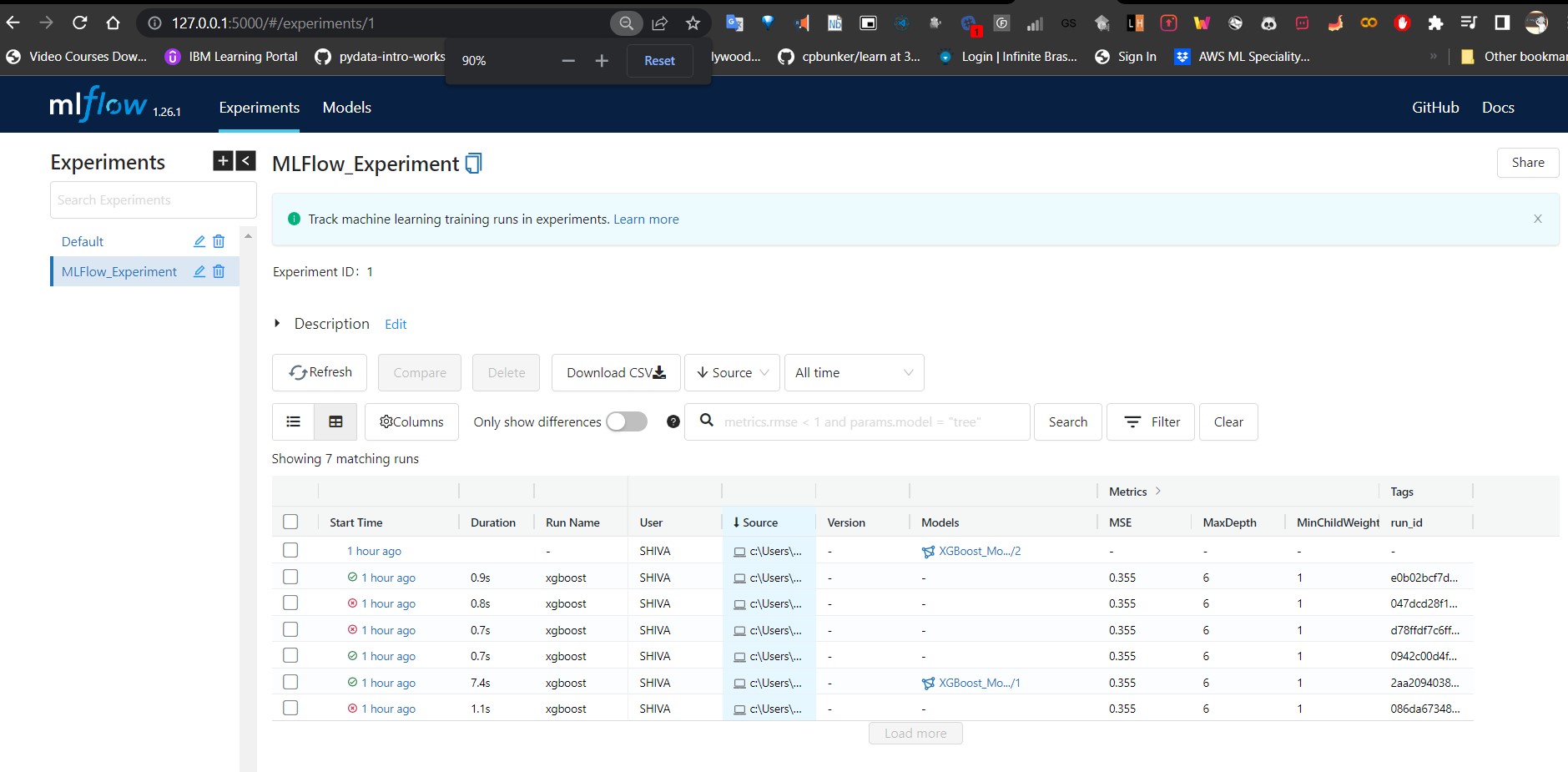
### Final Model Prediction from Staging Code
---
```python
# Predict with MLflow Model
print("Predict with MLflow Model:")
# models:///XGBoost_Model/{Stage} -- Stage Contains Two Stage 1. Staging 2. Production(Current)
model = mlflow.xgboost.load_model("models:///XGBoost_Model/Production")
print("="*50)
print("Model:\n", model)
print("="*50)
prediction = model.predict(X_test)
# print("Prediction.type:", type(prediction))
# print("="*50)
# print("Prediction.shape:", prediction.shape)
# print("="*50)
print("Prediction:\n", prediction)
print("Prediction Done.")
```
---
### Thanks for Reading 👨💻👩💻🧑💻